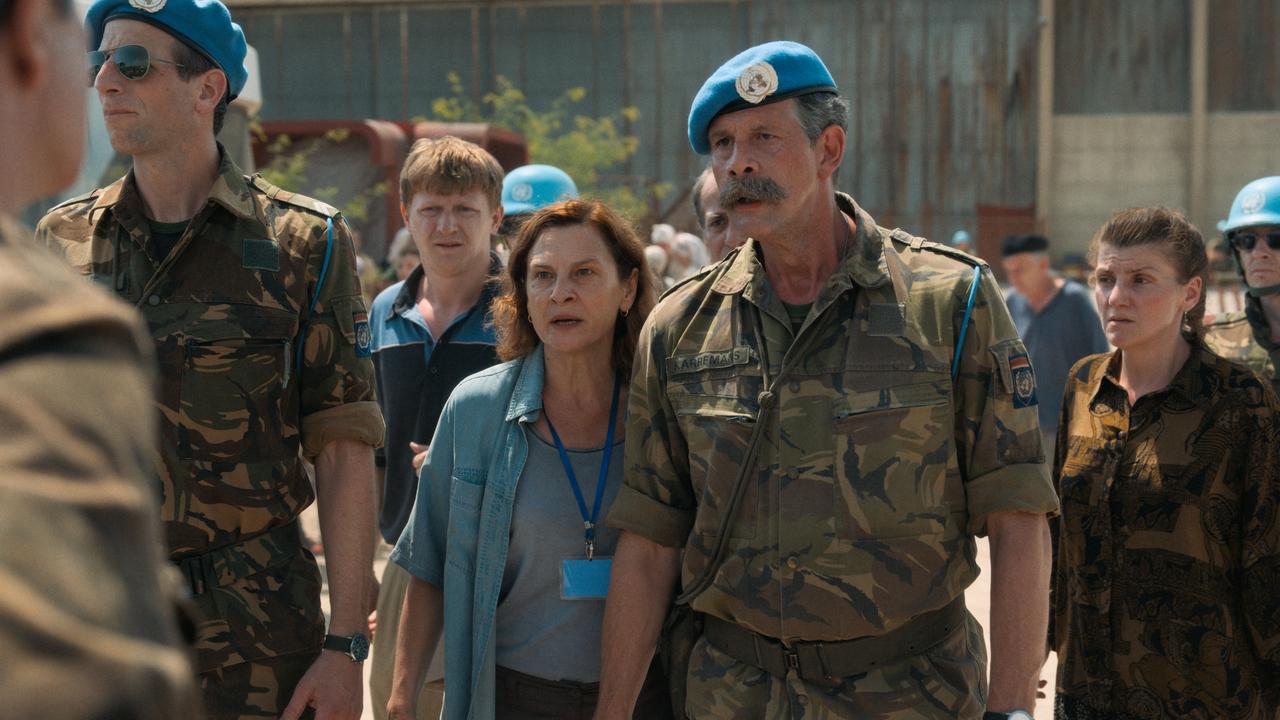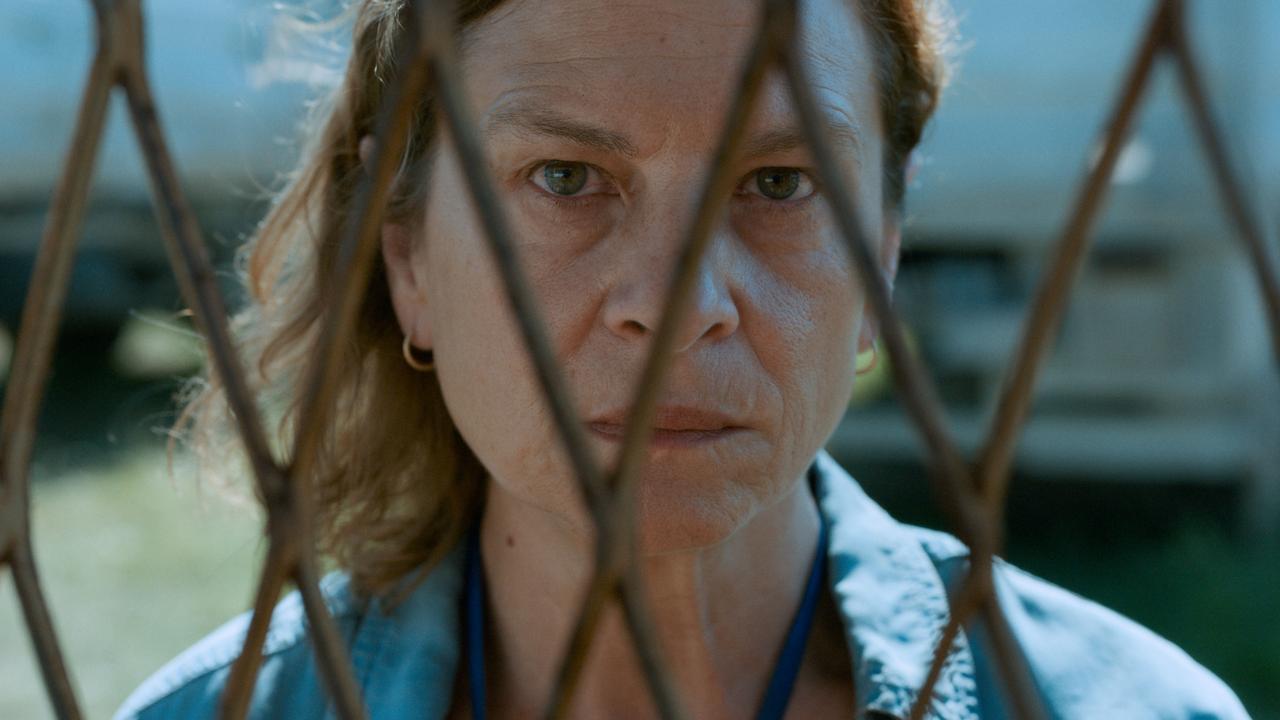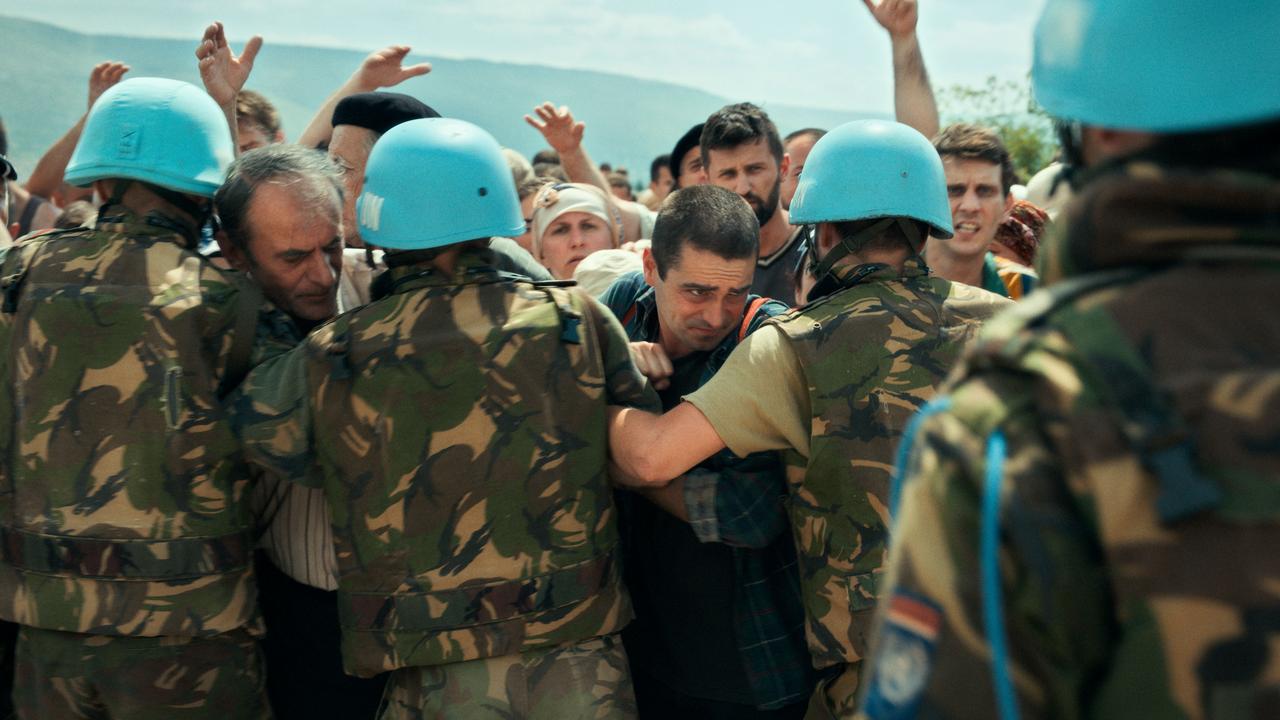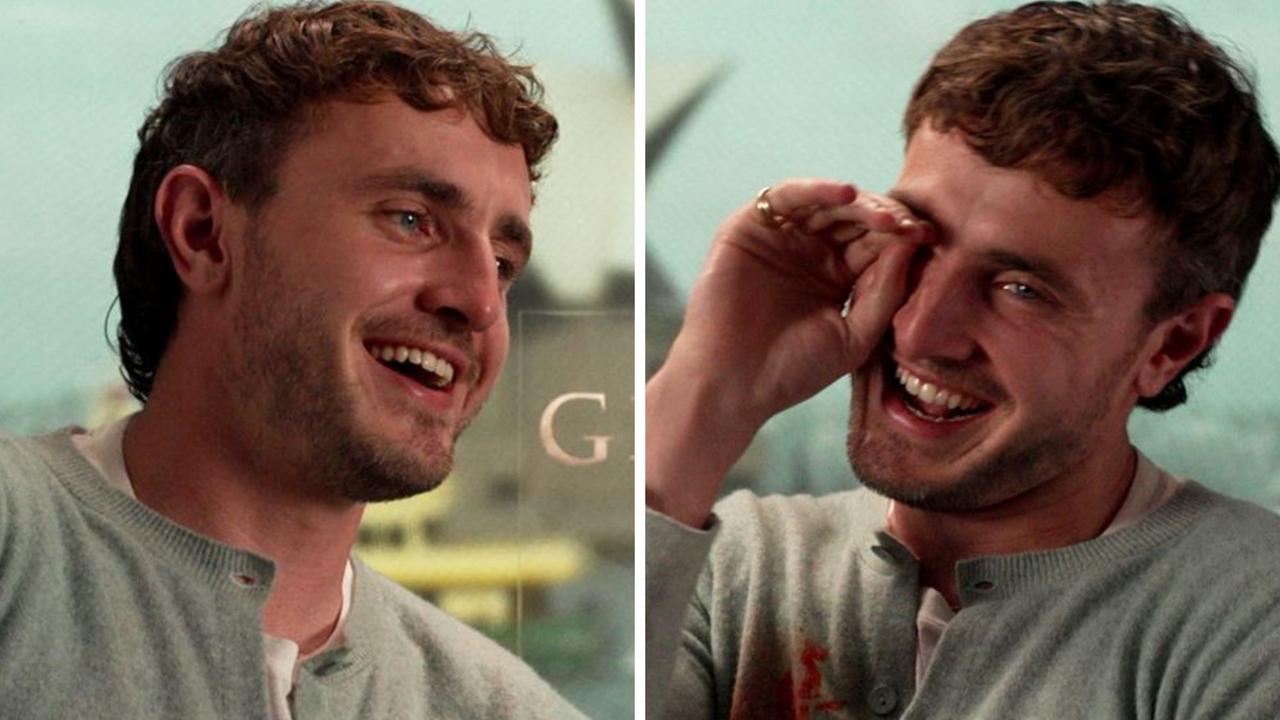Quo Vadis, Aida’s Jasmila Zbanic: ‘It can happen anywhere in the world’
Knowing the Oscar-nominated film would attract the ire of governments, the filmmakers didn’t even tell anyone they were making it.

For most international audiences watching Quo Vadis, Aida, they would have no conception of what it’s like to live through the hell that was the Srebrenica genocide.
The 1995 atrocity resulted in the murder of more than 8000 Bosniak men and boys at the hands of the Bosnian Serb Army, the military of the self-proclaimed secessionist Serbian Republic of Bosnia and Herzegovina.
Twenty-six years on, it’s an event that looms large in the consciousness of the region, a great trauma that is yet to be reconciled. But for the rest of the world, it was just another war in a place they’ve never been.
“We have this tendency to forget and make mistakes, but Srebrenica was never very present in a lot of people’s minds,” Quo Vadis, Aida writer and director Jasmila Zbanic told news.com.au.
“I wanted to make a film that would be watched internationally, so my aim was also that it would resonate with people who didn’t have war as their experience, because I felt that what happened in Srebrenica can happen anywhere in the world.
“It doesn’t have to be war, but we have to understand that our institutions can betray us.”

Nominated for Best International Feature at the 2021 Oscars, Quo Vadis, Aida dramatises the pivotal days during which the under-resourced and overwhelmed United Nations forces withdrew from Srebrenica, leaving its citizens to be killed at the hands of the now-convicted war criminal General Ratko Mladic.
Zbanic centred her film on the fictional character of Aida, a UN translator who, in the chaos, desperately attempts to secure safe passage for her husband and two teenage sons as it became clear the UN would not be defending the town and its people.
Aida may be fictional, but the situation was not – and Zbanic was conscious of being as accurate as she could while still speaking the “language of film”.
“When films are based on facts, you try to respect every fact. Films help [audiences] enter that world, you can feel what it’s like to be a person involved [in that situation], they can identify [with the character] so they can understand it better.
“When you read 8372 [people] died, it’s a number. But in the film, it’s a person, it’s somebody who loved the same kind of music. You connect with human beings and for 103 minutes, you are there.
“You are with these people, this is an experience that no other media can transport you to.”
Quo Vadis, Aida is an eye-opening, emotionally charged and confronting story, with the gravity of historical truth.

Of course, history is frequently disputed, especially when it comes to wars, and Zbanic faced myriad challenges to mount Quo Vadis, Aida, which ended up being funded as a co-production between nine countries.
“Srebrenica is still a very heated political subject, because the genocide is still denied by Serbian authorities. They’re spending a lot of money to deny it.
“I knew when I was making this film, about a subject Serbian authorities don’t recognise or want to hide, it would create obstacles. We decided to not announce we were even filming.
“We still had obstacles from within the Bosnian government, where some authorities are still connected with war criminals, and they didn’t allow us to have some locations and some military equipment. It was a lot of work.”
The film’s lead, a riveting Jasna Duricic, is Serbian. Zbanic called her “amazingly brave” to accept the role.
No Serbian distributor would take the film on for cinema release, but Zbanic said the movie travelled underground and found itself in people’s homes during the pandemic. While she received a lot of positive feedback from Serbian viewers, the filmmaker said it also engendered negative reactions from right-wing politicians and media.
“But many people think differently. Not all Serbs supported genocide, they have nothing to do with that.”
It wasn’t just external challenges Zbanic faced. She first conceived of making a film about Srebrenica when she 10 years ago read Under the UN Flag by Hasan Nuhanovic, but she didn’t feel ready.
It was only five years ago that she knew that as a filmmaker and as a woman, she had the skills and maturity to handle a production of Quo Vadis, Aida’s scale and intensity.

She also said that as a female filmmaker, she had a different perspective about war than to some of her male counterparts.
“As a woman, directing a film about war, I don’t find anything spectacular or beautiful about war. For me, all these stories about war that are patriotic or [dressed up] as bringing democracy or [pitting] good against evil is completely false.
“There are so many lies about war. War is always profit. I show it in a scene where a woman is cooking her lunch and she’s shot in her back while soldiers are stealing her property. Every war is about stealing. That, for me, is the image of war.”
Because of its Oscar attention last year, Quo Vadis, Aida has been seen by more people than Zbanic had imagined possible.
That’s a global audience who now understands that Srebrenica is not in the past – not for everyone, and Quo Vadis, Aida captures the struggle of reckoning with a painful history.
“Even though it happened 26 years ago, a lot of this trauma is still present in our everyday life. Sometimes it feels like it happened yesterday.
“The problem is there are still 1000 bodies of these boys that are missing. They are still somewhere in the mass graves that Serbian authorities are hiding. Because, of course, if you have bodies, then somebody killed them, and you can go to trial and people will be imprisoned.
“That’s what they’re trying to cover-up and not disclose. Because of that, you have mothers who are still searching for bodies. It’s not something that’s finished.
“We feel it has to finish, and we have to go on. Not denying it or forgetting it, but seeing the truth so we can go on.”
Quo Vadis, Aida is in cinemas from Thursday, February 17




